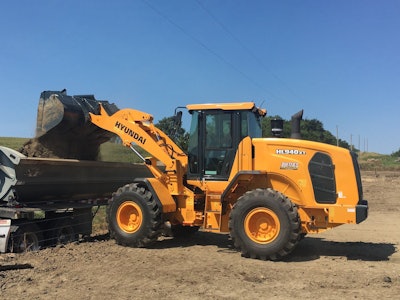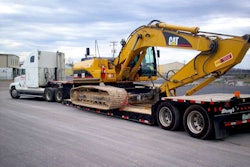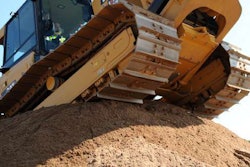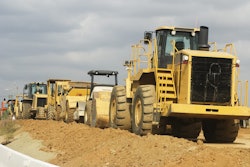 The new 940XT. Photo: Hyundai
The new 940XT. Photo: HyundaiHyundai Construction Equipment Americas pleaded guilty in federal court last week, admitting that it had lied to the Environmental Protection Agency about the importation of engines that violate the Clean Air Act.
On November 14, the American subsidiary of Korea’s Hyundai Heavy Industries appeared in an Atlanta federal court room facing charges of conspiring to defraud the United States government and violating the Clean Air Act.
With its guilty plea, the company was fined $1.95 million, according to a Department of Justice press release. The fines stem from a scheme within Hyundai CE Americas to deceive federal regulators and evade the enforcement of engine emission standards on the heavy equipment the company imports into the country.
“Hyundai Construction Equipment Americas tried to increase its profits by illegally importing diesel engines that did not comply with U.S. Clean Air Act regulations,” said EPA Office of Enforcement and Compliance Assurance Assistant Administrator Susan Bodine. “This case shows that EPA and our law enforcement partners will not allow importers to gain a competitive advantage or risk the health and safety of our communities by evading U.S. environmental laws.”
According to the Justice Department, upon the implementation of stricter emissions regulations tied to the EPA’s Clean Air Act, Hyundai CE Americas “opted to participate in a transition program.” This program allowed Hyundai to continue importing engines into the U.S. that did not meet the stricter emissions standards, but only in limited numbers.
During this transition period, Hyundai’s importation of non-compliant engines “substantially exceeded its allowance,” according to the DOJ. However, the company was required to report the number of non-compliant engines it was importing.
So, Hyundai CEA hired a consultant to advise them on how to proceed, according to the DOJ release. That consultant told them to stop importing the non-compliant engines and tell the EPA the truth.
Instead, the DOJ says, the company submitted false numbers in its report to the EPA that “intentionally understated the number of non-compliant engines it has imported from Korea.”
“This case underscores the necessity for foreign companies that opt to do business in the United States to comply with our Nation’s laws developed to protect human health and the environment,” said Assistant Attorney General Jeffrey Bossert Clark for the Environment and Natural Resources Division. “A self-reporting regime, such as the one here, depends upon the honesty and integrity of the regulated parties. We hope that this case will chart a new course for Hyundai, and serve as a lesson for all companies that interact with our regulatory agencies.”











